The Strange World of Japanese Hangover Cures
It’s a $178 million industry, and no one knows if it works.
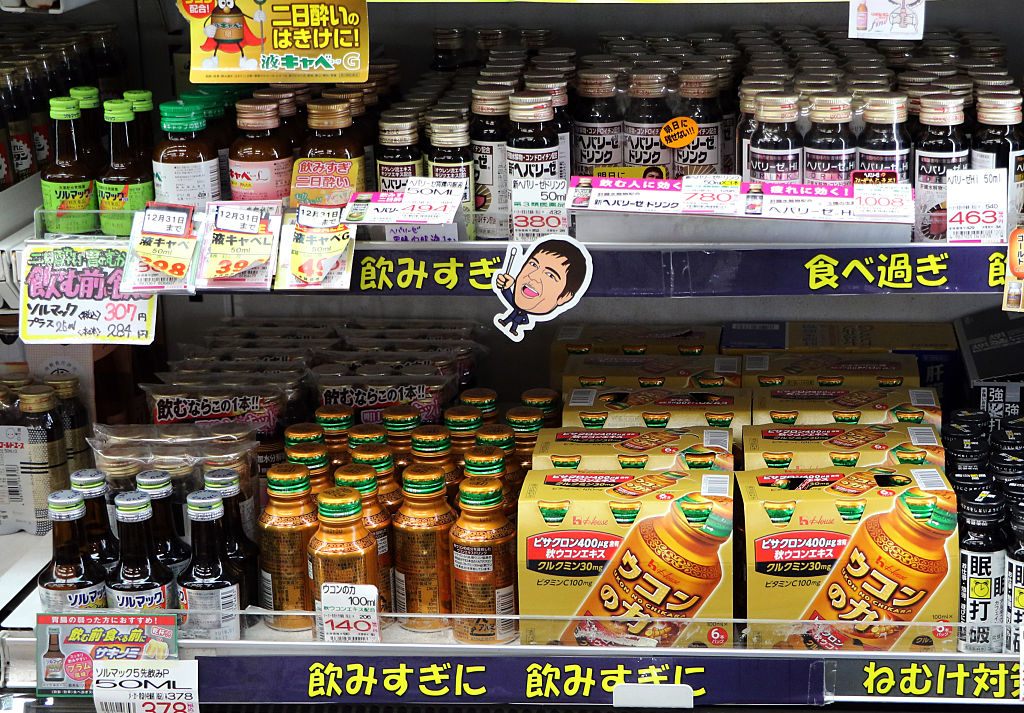
Bottled hangover cures on sale in Japan. (Photo: Daniel Leussnik/AFP/Getty Images)
Here’s something weird: scientists basically have no idea why hangovers happen. “The alcohol hangover is an intriguing issue since it is unknown why these symptoms are present after alcohol and its metabolites are eliminated from the body,” opined a survey published in 2008. This is part of the reason we don’t know how to fix them. A review of eight different potential hangover remedies found that precisely none of them had any noticeable effect on mitigating the effects of a hangover.
Humans, of course, keep trying. Different folk remedies vary by national or regional culture, and range wildly in popularity. Recognized American cures include water (drunk during and after alcohol consumption), “hair of the dog” (an alcoholic drink after one has sobered up, like a Bloody Mary), and the devouring of a greasy breakfast the following morning. Other countries take different tacks: leche de tigre (the marinating liquid left over from making ceviche) in Peru, oxblood soup in Korea, pickle juice in Eastern Europe.
But perhaps no country has stranger and more thorough hangover cures than Japan. What makes Japanese cures different is their breadth: the majority of other national hangover cures are simply foods or drinks. In Japan the culture of curing a hangover is closer to homeopathic medicine: these are preventative or curative potions designed to heal specific organs. Even the foods that make up Japanese hangover cures are specifically thought to heal organs, in direct contrast to, say, the British full breakfast or its American descendent, the greasy diner breakfast.
And Japanese cures are extremely popular, raking in around $178 million per year in sales.
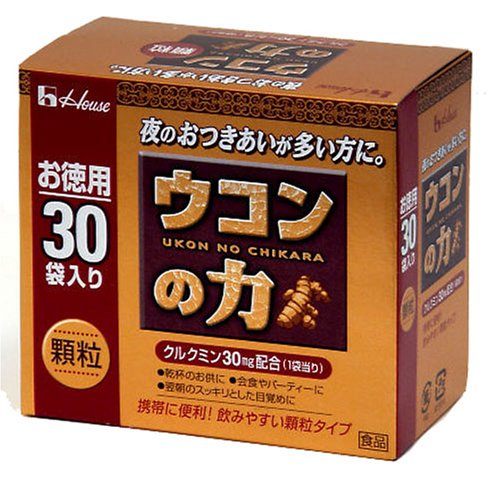
A packet of Ukon no Chikara, “the power of turmeric.” (Photo: Amazon)
Most of the Japanese cures or treatments are centered around the liver. The basic thinking, according to several residents of Japan I talked to, is that because this internal organ is tasked with breaking down alcohol into its component parts, any ingredient that claims to help the liver—whether it actually does or not—can be made into a hangover cure. “In the West people seem to talk about settling stomachs and rehydrating… but I think it’s fair to say in Japan the remedies are a lot more medically specific,” says Nicholas Coldicott, a food and drinks writer who has lived in Japan since 1988 and has had a drinks column in the Japan Times. “There are pictures of livers on some of the bottles.”
Perhaps the oddest of these is Hepalyse, which contains as its main ingredient…liver. Beef liver, to be precise. Hepalyse is in a long line of potions and cures that feature an animal’s organ as an attempt to heal or cure the same organ in humans, like tiger penis soup (believed to be an aphrodisiac in parts of China).
Many cures either include turmeric (like Hepalyse) or make it the focus of the potion. The most popular is Ukon no Chikara, literally “the power of turmeric.” Turmeric, a mildly-flavored but vividly colored yellow root, is kind of having a moment; turmeric tea and and a turmeric-dairy concoction called “golden milk” litter the pages of homeopathic blogs throughout the western world. In the US, at least lately, in some corners, turmeric is believed to have all kinds of wondrous toxin-cleansing effects. In Japan, it’s specifically thought to enhance liver function and aid in digestion. (This is basically unproven but not impossible.) Turmeric can also be found in pill or powder form for the same purpose. Luckily by all accounts Ukon no Chikara is very tasty. Both Hepalyse and Ukon no Chikara are supposed to be drunk before you go out drinking.
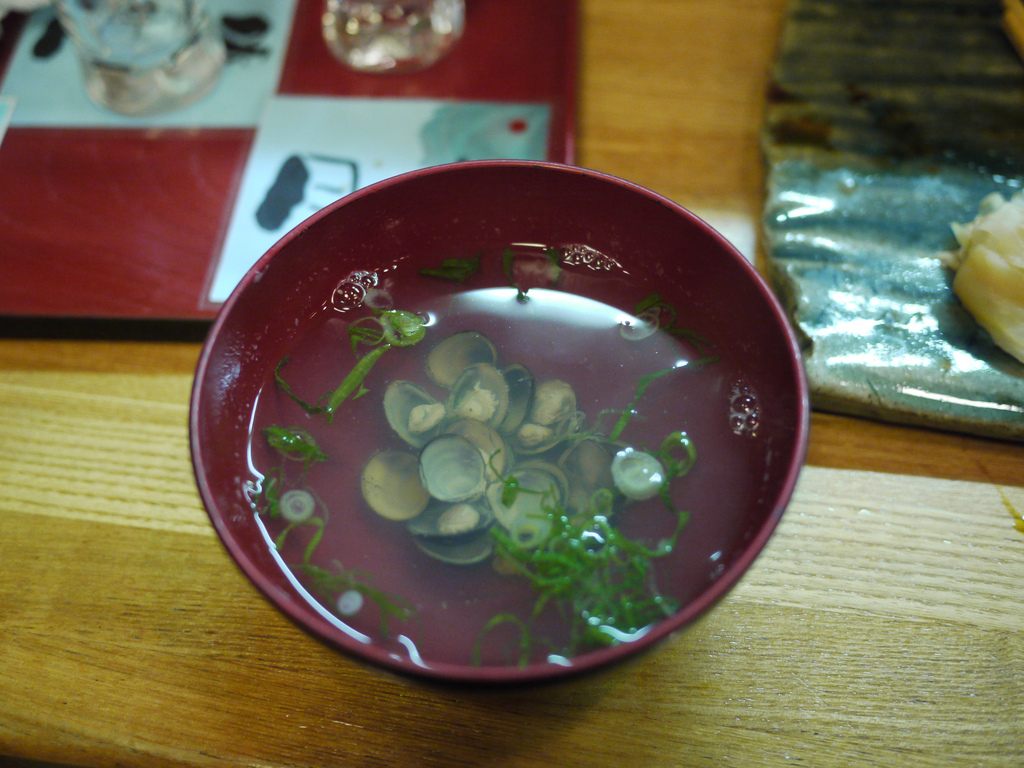
Shijimi Clam soup. (Photo: GanMed64/CC BY 2.0)
Another one, also tasty: shijimi clams, a freshwater clam somewhere in between a mussel and a littleneck clam in flavor. Shijimi clams are alleged to have some sort of amino acid that restores liver function—again, unsupported, but they are commonly found in miso soup and ramen which are eaten as a hangover cure.
Then there are the Japanese versions of sports drinks. One of the most popular is Pocari Sweat, which is not dissimilar from Gatorade: basically just water with some salts and sugars. Pocari Sweat is so named because it’s designed to have similar ingredients and components as human sweat: water, sodium, potassium. “People definitely reach for Pocari Sweat to cure hangovers, and there are times people have bought one for me if I’m looking hungover in the office,” says Coldicott.
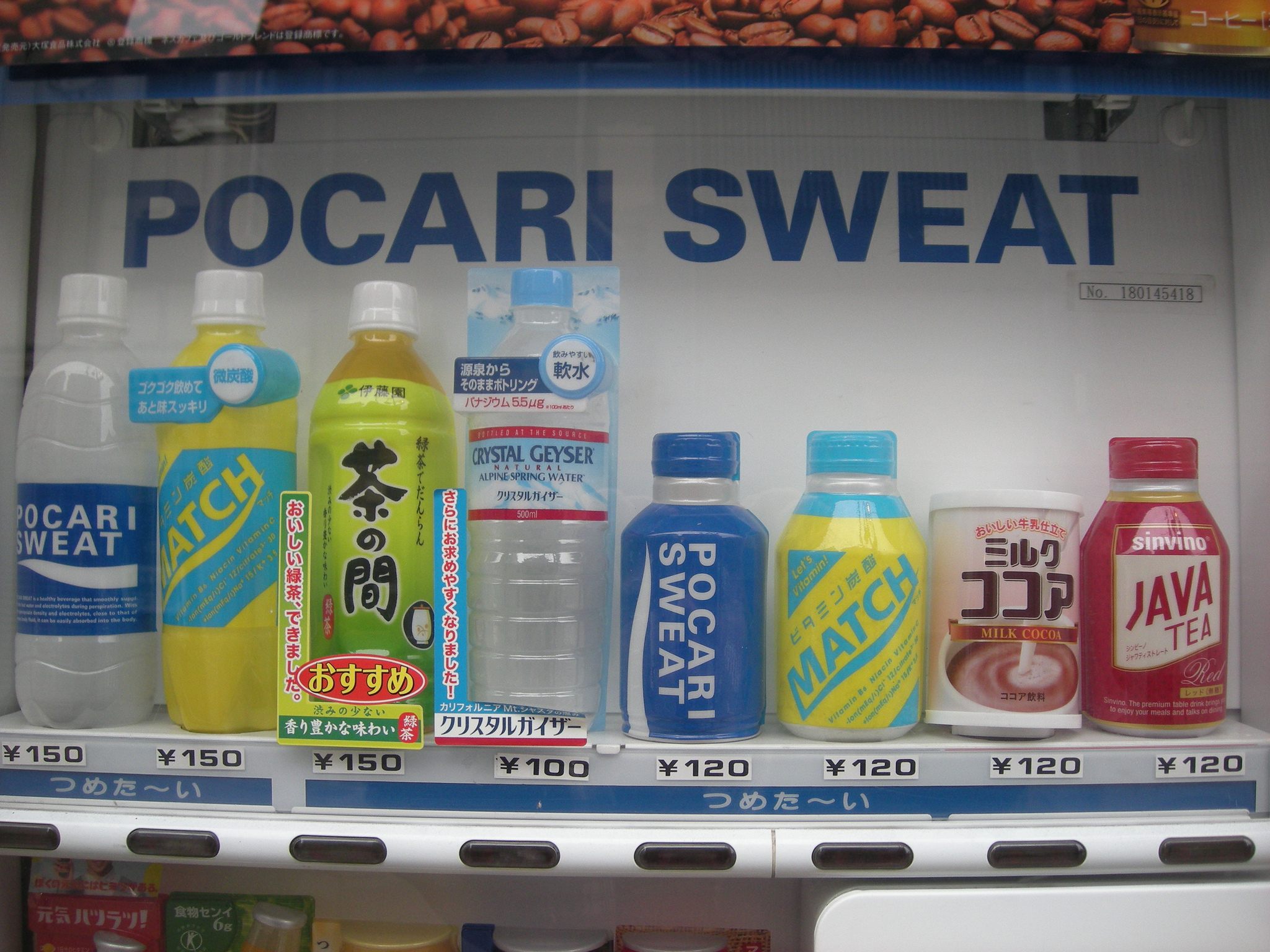
A Pocari Sweat vending machine in Japan. (Photo: jam_232/CC BY 2.0)
Another analog would be Lipovitan D, an energy drink that predates Red Bull but is sold in tiny bottles like Five-Hour Energy. With a high dose of taurine, Lipovitan would have the dual effects of fighting off sleepiness and sluggishness, as well as, according to some recent studies, breaking down some of the component parts of alcohol more efficiently.
Perhaps the grossest is Solmac, a combination of various herbs and greens that is supposed to settle the stomach. Counterintuitively, basically all sources I can find say it tastes absolutely horrific, like eating a pile of grass clippings.
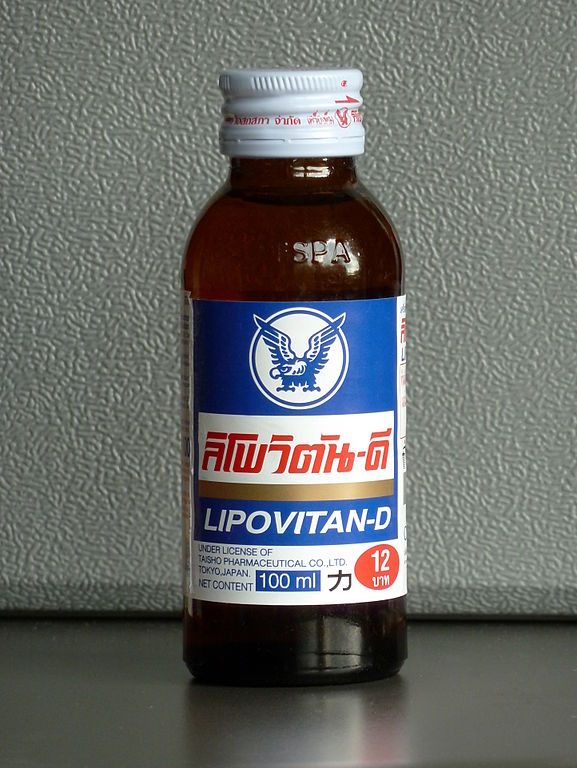
A bottle of Lipovitan-D. (Photo: Dynomat/CC BY-SA 3.0)
There are also a few foodstuffs that are often said to, Coldicott says, cure a hangover. These include persimmons, watermelon, and umeboshi (the latter is a pickled fruit often referred to as a plum but which is more closely related to an apricot). Persimmons, a fruit not particularly popular in North America but prized in Japan, contain catalase, an enzyme which, amazingly enough, might actually have some promise in breaking down alcohol in the body. Watermelon is said to be good for nausea; unproven, but certainly the fruit’s high water and sugar content could ease some of a hangover’s effects. And umeboshi, heavily salted, could replace lost salts in a similar way to energy drinks.
Like any other culture’s hangover cures, Japan’s tend to fall into one basic category: might help, but if not, you won’t be any worse off. And given how embarrassingly little we know about hangovers, that seems about the best we can hope for.


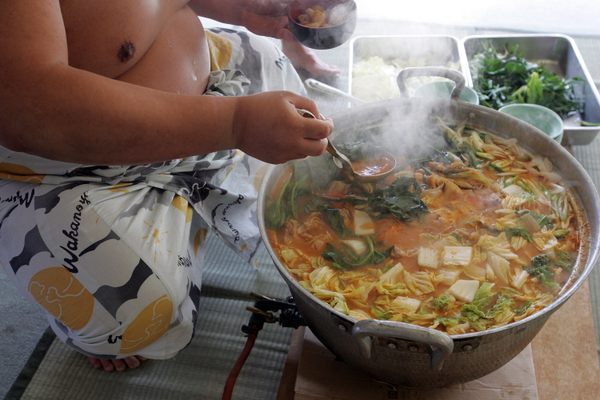




Follow us on Twitter to get the latest on the world's hidden wonders.
Like us on Facebook to get the latest on the world's hidden wonders.
Follow us on Twitter Like us on Facebook